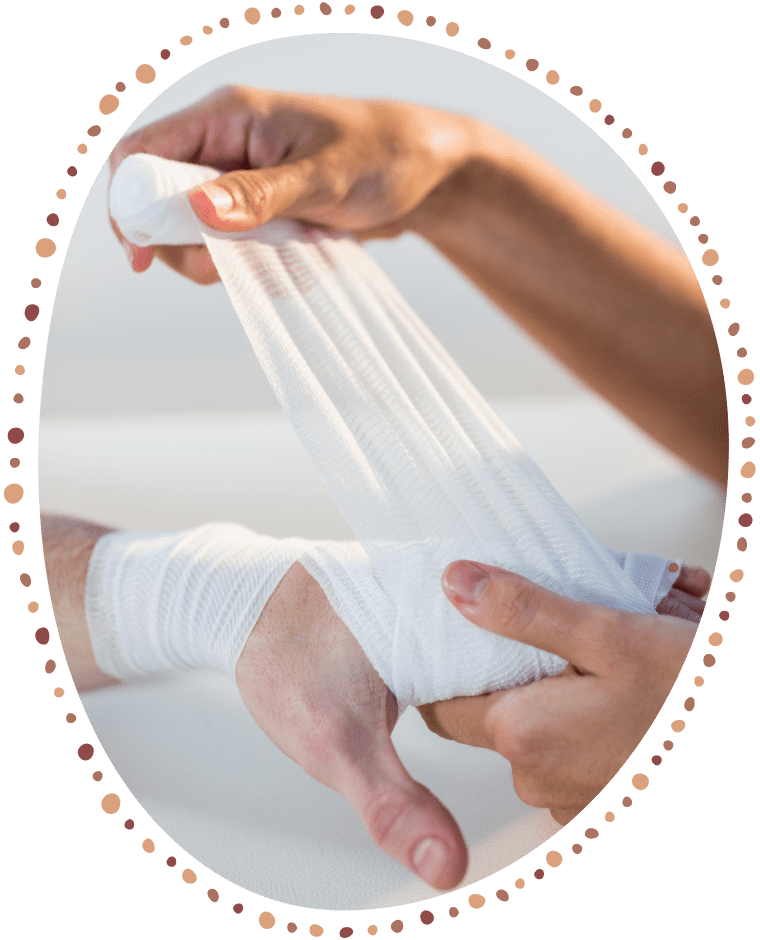Community Nursing Services in Adelaide
Personalised Care to Help You Manage Your Health
The NDIS will fund specific disability-related health supports where the supports are a regular part of the participant’s daily life, and the need for the supports results from the participant’s disability. The health system will continue to be responsible for the diagnosis, early intervention and clinical treatment of health conditions, ongoing and chronic health conditions not related to a participant’s disability, time-limited (non-ongoing) and palliative conditions, rehabilitation, convalescent care or acute/post-acute care (e.g. hospital and Hospital in the Home).
However where a participant’s disability prevents them from being able to self-manage certain health conditions that a person without disability would be expected to do themselves, the NDIS will provide funding for the care to be delivered by a support worker.

Support types
The typical types of support available can be grouped into eight ‘support type’ categories.
The following list of fundable supports is not exhaustive, and supports may be delivered in a range of ways. Note: this list was updated in June 2020.
Continence Supports
- An NDIS-funded suitably qualified and competent worker to undertake insertion, removal or change of indwelling urethral catheter, suprapubic catheter and/or clean intermittent catheter.
- Training of an NDIS-funded suitably qualified and competent worker to provide catheter maintenance and care.
- Provision of daily catheter maintenance and care by an NDIS-funded suitably qualified and competent worker.
- An NDIS-funded suitably qualified and competent worker to provide stoma management and care.
- All continence consumables (for example catheter, bags, pads, bottles, straps). Training of an NDIS-funded suitably qualified and competent worker to provide assistance to manage bowel care where needed.

Diabetic Management Supports
- Development of a specific diabetes management plan where the participant’s disability complicates the management and care of their diabetes. This would build on the clinical plan developed by the General Practitioner.
- Implementation of a diabetic management plan and daily maintenance and care by an NDIS-funded suitably qualified and competent worker.
- Training of an NDIS-funded suitably qualified and competent worker to implement a diabetic management plan.
Dysphagia Supports
- Development and periodic review of a meal time management plan by an NDIS- funded suitably qualified and competent clinician.
- Implementation of a meal time management plan by an NDIS-funded suitably qualified and competent worker.
- Swallowing therapy associated with dysphagia provided by an NDIS-funded suitably qualified and competent worker.
- Swallowing therapy associated with dysphagia provided by an NDIS-funded suitably qualified and competent worker.
- Training of an NDIS-funded suitably qualified and competent worker to implement the meal time management plan and OEDCP.
- Development, implementation and periodic review of an oral eating and drinking care plan (OEDCP) by an NDIS-funded suitably qualified and competent clinician.
- Consumables such as thickeners to enable a participant to swallow more easily and reduce their risk of aspiration/choking, if not available through the Pharmaceutical Benefits Scheme (PBS).

Epilepsy Supports
- Training of an NDIS-funded suitably qualified and competent worker to implement the participant’s Epilepsy Management Plan (EMP) and/or Emergency Medication Management Plan (EMMP).
- Epilepsy seizure monitoring by an NDIS-funded suitably qualified and competent worker including the application of assistive technology.
Nutrition Supports
- Dietetic consultations and the development and periodic review of a nutritional meal plan by an NDIS-funded suitably qualified and competent clinician.
- Implementation of a nutritional meal plan by an NDIS-funded suitably qualified and competent worker.
- Training of an NDIS-funded suitably qualified and competent worker to implement the nutritional meal plan.
- Percutaneous Endoscopic Gastrostomy (PEG) Stoma Changes (to assist feeding) by a suitably qualified and competent clinician.
- Provision of PEG maintenance and care by a suitably qualified and competent worker.
- Training of an NDIS-funded suitably qualified and competent worker to provide PEG maintenance and care.
- Home Enteral Nutrition (HEN) and (PEG) and equipment and consumables excluding food.
- HEN formula/nutritional supplements (to meet participant’s nutritional needs) if cost is in excess of PBS funding.
Podiatry Supports
- Assessment, development, implementation and periodic review of a podiatry care plan by an NDIS-funded suitably qualified and competent clinician.
- Training of an NDIS-funded suitably qualified and competent worker to implement the podiatry care plan and perform any required daily maintenance and care related to the plan.
Respiratory Supports
- Development and periodic review of a care plan for the daily maintenance of tracheostomy (insertion, removal and change) by an NDIS-funded suitably qualified and competent clinician.
- Implementation of daily maintenance of tracheostomy (insertion, removal and change) by an NDIS-funded suitably qualified and competent worker.
- Training of an NDIS-funded suitably qualified and competent worker to provide tracheostomy maintenance and care.
- Provision of tracheostomy equipment and consumables.
- Provision of a Constant Positive Airway Pressure machine (CPAP) machine and consumables.
- Provision of a Bi-level Positive Airway Pressure (BIPAP) machine and consumables.
- Provision of a ventilator, air humidifier, portable suction machine and/or cough assist machine and consumables.
- Assistance with the use of all respiratory medical equipment as well as the training of a suitably qualified and competent worker to use the equipment.

Wound and Pressure Care Supports
- Development of a care plan by a suitably qualified and competent clinician.
- Wound care and pressure care (including pressure injury management) by an NDIS-funded suitably qualified and competent worker.
- Training of support workers/families in prevention of pressure areas and wounds.
- Wound care and pressure care consumables (e.g. dressings, gauze, bandages, tape, lymphoedema garments and pressure wraps).
- Provision of Assistive Technology as required due to a participant’s disability, to prevent pressure areas/wounds occurring.
- Lymphoedema machines as well as assistance with the use of the equipment and the training of an NDIS-funded suitably qualified and competent worker to use the machine.
Looking for support?
Let's work together.
Nganana Inc. is here to provide you with more information and answer any questions you may have. We can assist in developing an effective and creative solution to your support needs.
